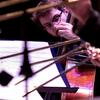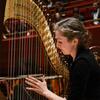Doctor of Musical Arts in Performance
Become an accomplished professional musician and prepare to teach advanced performing arts with a Doctor of Musical Arts (DMA) in Performance in Temple’s Boyer College of Music and Dance. Master your instrument of choice and develop sophisticated music interpretation skills. Performance DMA graduates become educators in higher education and performers in professional music ensembles throughout the world, and they teach in private studios.
The Performance DMA program focuses on 17 instrumental and vocal concentrations. You'll hone your musicianship skills through ensemble opportunities, recitals and rigorous performance training. The curriculum also focuses on a thorough understanding of music analysis, history and theory.
Students take private lessons with the Instrumental Studies Department’s exceptional, highly specialized faculty and guest instructors for invaluable real-world experience. Boyer’s faculty members have performed with The Chamber Music Orchestra of Philadelphia, the Delaware Symphony Orchestra, the Philadelphia Orchestra, The Opera Company of Philadelphia and the Pennsylvania Ballet, among others.
As part of Temple’s interdisciplinary Center for the Performing and Cinematic Arts, students in the Performance DMA program can grow their musicianship through access to Temple’s state-of-the-art facilities, including ensemble rehearsal spaces, practice rooms and a recording studio.


